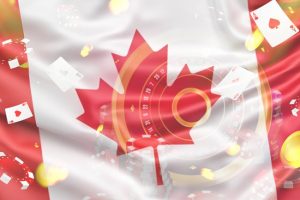From the moment entertainment got modernized and the first online casinos appeared, markets worldwide have been trying to find a good way to organize it from a legal point of view. While some markets embraced it immediately, the others are strictly against it.
Come to think of Canada, what we know for fact is that this region is seen as the one with huge potential. However, the legal aspect of it is still slightly confusing.
Can players in Canada gamble online?
Looking at the legality of it, it is against the law to operate an online casino in Canada without holding a license. On the other hand, it is safe and legal for the residents of this country to play games in offshore establishments.
We’ve done a bit of research on the legality of online gambling in Canada, so stay with us to find out what we’ve discovered!
Canadian Gaming Authorities and Regulators
 Allow us to clarify once again: Canadian players are permitted to place bets and cash out their online winnings, meaning the operators are greenlighted to offer their services to the interested players. However, the only scenario in which all of this works is when those entertainment establishments are located OUTSIDE the Canadian soil.
Allow us to clarify once again: Canadian players are permitted to place bets and cash out their online winnings, meaning the operators are greenlighted to offer their services to the interested players. However, the only scenario in which all of this works is when those entertainment establishments are located OUTSIDE the Canadian soil.
Speaking of greenlighting…
…the reformed Criminal Code from 1970 made it possible for individual provinces to organize gambling activities in their regions. Moreover, they were permitted to open brick-and-mortar venues as well as lotteries, both of which were regulated by local authorities.
Following is the list of all provincial gaming regulators:
- Ontario – Ontario Lottery and Gaming Corporation
- Alberta – Alberta Gaming and Liquor Commission
- British Columbia – BCLC
- Manitoba – Liquor and Gaming Commission of Manitoba
- Nova Scotia – Alcohol, Gaming, Fuel and Tobacco Division Service of Nova Scotia
- New Brunswick – New Brunswick Gaming Control
- New Foundland – Service NL
- Prince Edward Island – Prince Edward Island Lotteries Commission
- Quebec – Loto Quebec
- Saskatchewan – Saskatchewan Liquor and Gaming Authority
Worth stressing out is that some of the abovementioned local regulators have their online platforms as well. However, the quality and the selection of bonuses, as well as the game is significantly poorer than the one offered by foreign casinos.
In addition to this list…
…there’s also Kahnawake Commission. Realizing the immense potential of online entertainment in 1996, Mohawk territory of Kahnawake established its commission the very same year. Having in mind that an Indian reservation is a sovereign legal entity, and consequently not bound by the country’s law, the Commission had all the freedom to license offshore gaming platforms.
Initially very popular, especially with Microgaming’s older brands, it’s become less favorable, making a way for other regulators, especially Malta and Gibraltar.
Comparing the US and Canadian Market
 If you want us to express the comparison of the legality of online gambling in these two burgeoning markets in colors, then the US could be seen as a “black” market, while Canada is a “grey” zone.
If you want us to express the comparison of the legality of online gambling in these two burgeoning markets in colors, then the US could be seen as a “black” market, while Canada is a “grey” zone.
What does that mean?
With the exception of several states such as NJ, Illinois, Iowa, Pennsylvania, West Virginia, Nevada, and a couple of more where residents are allowed to visit offshore platforms and place bets online, those from the rest of the United States are strictly prohibited to do so.
On the other hand, there are no laws that specifically prevent Canadians from going so. What we have to point out as well is that it isn’t possible to place wagers on sports at a land-based casino in Canada, but one can do so at an online offshore venue.
But, what both of these two markets have in common is immense potential, which is why there are continuous efforts to regulate offshore activities in a way both authorities and players would be satisfied.
What Will the Future Bring?
As far as the prognosis from the Q1 of the current year pointed out, this branch of the entertainment industry is one of the hugest revenue generators. In addition to this, a great number of government functions and charitable activities are funded from the money acquired as gambling revenue.
Though no one can claim for sure…
…how the situation will look like in the upcoming times, we can make some assumptions. Knowing that there were no prosecutions or similar activities regarding those who visit offshore gambling sites, the logical conclusion would be that Canada could only come up with a plan to legalize it and start collecting revenue.
This way, both the country and the punters would end up satisfied. Perhaps the UK’s “white” market, where gambling is regulated under the most stringent rules and code of conduct could be a fine example to follow.
Final Thoughts
What we can conclude from the facts is the following:
- Canadian players are not prohibited from visiting offshore gambling sites.
- It is against the law to run an online casino without a license if located within the boundaries of Canada.
- The Criminal Code of 1970 doesn’t explicitly classify online gambling as criminal activity.
- Any winnings derived from gambling are not taxable unless those are classified as a form of employment, based upon skill, frequency, and expectation of payout; for those who only play for fun at any online establishment, winnings won’t be susceptible to taxation.
In the end, do bear in mind that our observations and conclusions here are just personal point of view, not legal advice.
What you as a punter should do…
…is act responsibly and familiarize yourself with Terms and Conditions of any casino, be it local or offshore. The majority of them displays a list of allowed or restricted countries, so yours is to check that.
Do analyze game and promo availability, banking policy, customer support, and other relevant sectors before you decide to become a member of a certain platform. That’s the only way you can end up with something that caters to your needs.
We hope our guide on the legality of online gambling in Canada brought you some valuable insights!



















